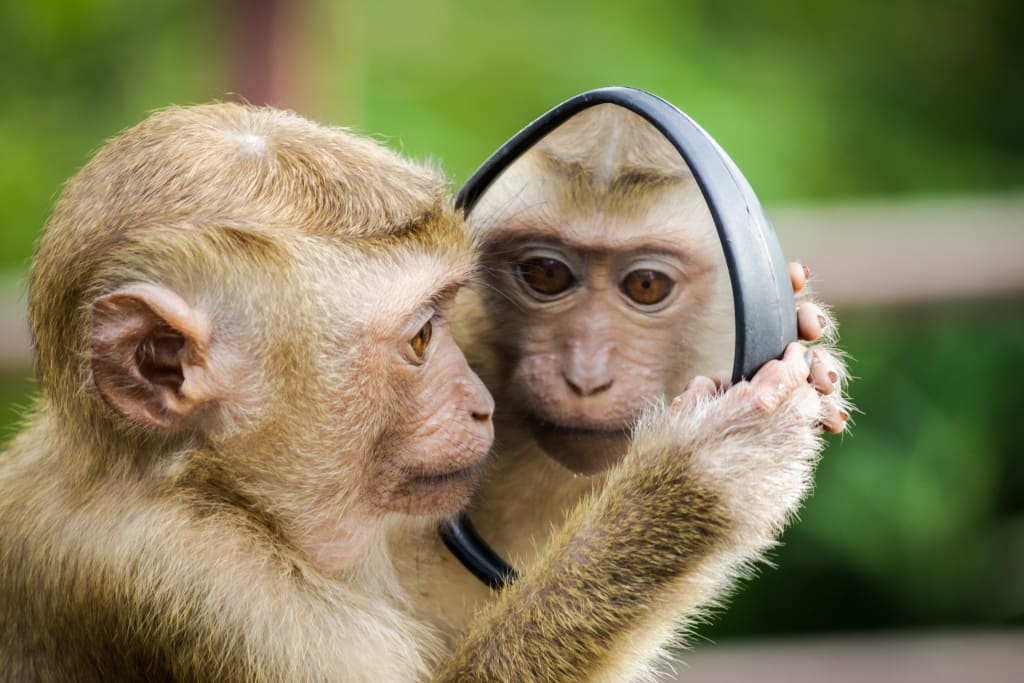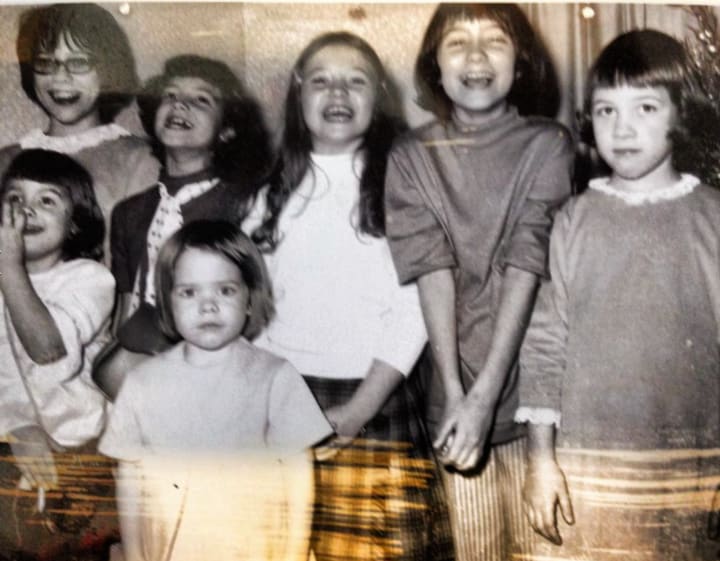Am I Ugly?
An inward analysis of outward appearance in today's connected world.

When it comes to Facebook, I am typically more voyeur than participant. Staying abreast of local happenings and observing the day to day lives of friends and family while remaining comfortably invisible on the couch in my living room. The comments are a momentary window into the minds of acquaintances and strangers alike; sometimes entertaining and amusing, sometimes prophetic but all too often distressing and hostile.
Normally the comments are transitory voices in my head, not visiting long, rarely leaving a lasting emotion behind to linger in my thoughts. That is, until recently. An unexpected thought remained, surfacing periodically throughout the day. Am I ugly?
A simple question, not to be answered simply. Though a mirror may replicate an exterior view of one’s appearance, the complexity of beauty cannot be conveyed in a mere reflection. Many factors play a role in how we perceive ourselves and how we are perceived by others. Hygiene, clothing, hairstyle, genetic features and how we carry ourselves can dramatically impact one’s outward façade. Self-esteem, compassion and moral principles inwardly shape the character that becomes one’s identity, a personality that others interpret on a scale of beautiful to ugly.
Inward and outward factors are not mutually exclusive. A complimentary hairstyle and appropriate, well fitted clothing can pleasantly alter the person one sees in the mirror, in turn sparking an increase in self-esteem. This boost in confidence can then be a driving force aspiring personal improvements visible to others.
Conversely, a kind person who personifies integrity and unselfishly performs caring deeds is viewed by others as beautiful even if outward appearances are less so. Less than beautiful external trappings become symbolic of sacrifice and solidify a sense of beauty in the eyes of the viewer.
Beauty, or lack of beauty, can also be deceiving. Judgements based on external appearances don’t always consider the strengths or weaknesses of character lying below the surface.
At a recent social gathering, a man of average looks was conversing about his upcoming wedding anniversary which prompted him to share his story. He told a story of a first meeting and the conflicts overcome to spend the rest of his years with the love of his life. He spoke with such confidence and an emotional sincerity that I cannot convey in words. Suffice it to say, despite his average exterior appearance, any woman within earshot of his narrative now considered him to be the most attractive man in the room.
You may be wondering how the contemplation of personal appearance found its way to the forefront of my mind for the better part of a day. Let me start by describing myself as I see me. Average. Decent looking, but not beauty contest material; somewhere between sinner and saint; not a clothes horse, but not a candidate for What Not to Wear; reasonably confident without being arrogant. In other words, sitting on the fence regarding sensitivity to appearances and opinions.
That being said, I had a perplexing revelation about photos posted to Facebook. Upon posting photos of themselves on Facebook, my friends are showered with complimentary comments. Raining down on them are such remarks as, “You look beautiful. Looking good hot stuff. Gorgeous. Looking fabulous. My beautiful friend. You look amazing.”
When I post a photo of myself on Facebook, there is no shower of compliments. The sun is out, not a cloud in the sky. It’s a drought. I receive such comments as, “Your hair has really gotten longer. Cute picture, but the one in front looks a little scared.”
Yes, I’m the little one in front. Hence the question, “Am I ugly?”.

After dwelling on this revelation for a day and hoping for some honest insight, I approached my husband with the dilemma. He wisely turned his brain back on to full power as if he were at work and responded with a carefully crafted answer. Some people possess a level of self-esteem that can benefit from the accolades of others. On the other hand, if you exude an air of confidence and contentment with who you are, others may feel a deluge of praise is not necessary to your achievement of happiness.
Plausible answer. I would argue, however, that even a supermodel’s heart likely flutters when the love of her life says she’s beautiful despite hearing those words with frequency from the world. Surely even the most confident people have a need to feel loved by their inner circle even if it’s just a sprinkle of praise now and again.
In the end, this inward analysis of outward appearance has led to the conclusion that there is no conclusion. The idea of beauty is dynamic, shifted by the ever-changing influences of environmental factors, societal views and personal emotions. The scale of beauty is affected by the perceptions of the era and the circumstances of the moment. That which is beautiful can become ugly over decades or in the blink of an eye, and vice versa.
Am I ugly? Of course, I am ... sometimes. But I am also beautiful, sometimes. We are multifaceted creatures with good days and bad days. An important concept to remember before clicking the Post button on Facebook, opening the window to your mind and giving the world a small glimpse of your character. Take a moment, reread your words and consider how you would like the world to envision you.
As for the opinions garnered from social media, these transitory voices are best regarded as one-dimensional encounters of little lasting value to self-worth. In the end, the most meaningful gestures come from those who see us as beautiful even at our ugliest moments. A screen full of accolades is of little importance compared to that special someone reaching to hold your hand as you walk thru life together. That is real beauty.

About the Creator
Tammy Hader
After 30 years as an accountant, Tammy began creating a new legacy beyond spreadsheets. Her nostalgic writing reflects on the past to explain the present. In her stories, you may recognize reflections of your own past.






Comments
There are no comments for this story
Be the first to respond and start the conversation.